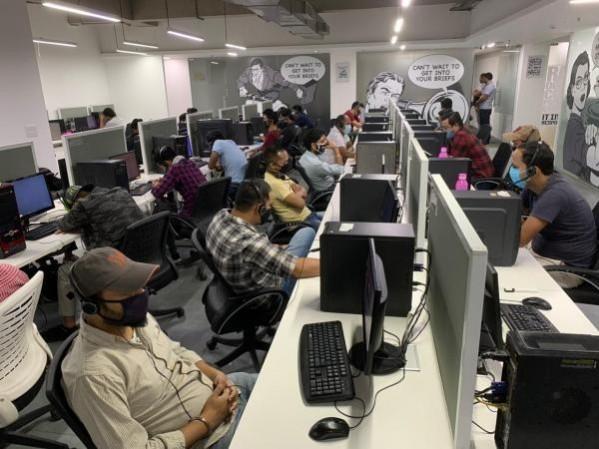Four persons have been arrested for allegedly running a fake international call centre in Kakadeo locality in Kanpur and duping 12,000 US citizens of at least 9 lakh dollars (Rs 6.7 crore) by hacking their data.
The arrests were made on Wednesday and the gang leader is a software engineer with a degree from Pune University and an expert in mobile hacking.

The police raided the gang's call centre and recovered several phones, computer hard disks and ATM cards.
Police commissioner Asim Arun said, "The fraudsters were cheating people in the US in dollars by hacking their mobile phones through the call centre. Mastermind Munendra Sharma is a software engineer from Pune University, and a resident of Noida, Sanjeev, a resident of Firozabad, Zikrulla, a native of Pratapgarh, and Suraj Suman, a resident of Bihar are the others in the gang."
Police have recovered 27 hard disks, six ATM cards of different banks, passport, Aadhar card, driving licence, five Android phones, American Express Bank debit card, two PAN cards, Hotel Taj membership card from their possession, said the official.
According to the official, as soon as American citizens would click on blinking ads on any site, such as reduce obesity, reduce belly, strengthen knees, increase length or stop hair fall, then a malware would be uploaded to their mobile. Pop-up messages would start appearing on the screen again and again, causing inconvenience to the mobile user. A helpline number would come with the annoying pop ups and as soon as the victim called the number and the gang would ask for a charge in dollars to clean the virus and give their service.
"The user would transfer money to the specified account, after which he was asked to download some app for technical support. The phone was hacked as soon as the user downloaded the app." said the official.
The plan was sold by the call centre in the name of removing the malware and providing service for six months to one year. In case no service was given, they promised to refund the amount. When a user asked for money back by saying that the service was not good, he used to become a victim of fraud.
Since the caller's mobile was already hacked, the gangsters used to change the coding by going to the HTML of the account details on remote access.
They would then send fake messages of online transactions to the user's phone. In this message, the amount was shown to be many times more than the amount to be refunded, whereas in reality no amount was transferred. At the same time, the user felt that he had been refunded more, police said.

















